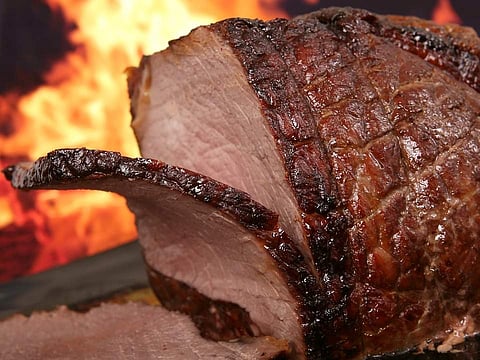

BENGALURU: The seizure of around 100kg of spotted deer and wild boar meat by the Bengaluru division of the Karnataka forest department, and arrest of one person has revealed that bushmeat hunting is on the rise since 2023.
It is sold surreptitiously, and demand for the meat has seen a spike within a 100km radius of Bengaluru city.
Sales take place through WhatsApp messages and customer connect in the name of ‘Soft Meat’, and there is a growing demand for venison from all sections of society, said an investigating forest department official.
Accused Pratap C, aged 31, a resident of Gubbalala, Banashankari, who was nabbed, revealed that a team of six had shot down the animals on Saturday for sale on Sunday in Bengaluru.
“Pratap confessed to have shot the animals in Kammasandra Wildlife Sanctuary in Kolar. After obtaining judicial custody, he will be taken to the crime scene for more details. Analysis of the method used, seizure of a double barrel gun, one single barrel gun, 10 cartridges, knives, weighing machines and meat show it is the work of an organised gang. Pratap confessed to have been doing this for the past 4-5 years,” the official said.
The officials admitted the forests of Kolar, Tumakuru, Bannerghatta, Cauvery Wildlife Sanctuary, Savandurga, Ramanagara and others within a 100km radius of Bengaluru are vulnerable for bushmeat hunting.
“We are not just looking for the rest of Pratap’s gang members, but also his suppliers and customers, as under the Wildlife Protection Act, 1972, all of them are guilty,” the official added.
The animals and birds hunted for meat include peacocks, pangolins, porcupines, yellow-footed green pigeon, hare, mouse deer, barking deer, monitor lizard and Great Indian Gaur.
A kilogram of these meats range from Rs 600-2,000, depending on the type of animal and the way it has been brought down. Demand is also high in Sakleshpur, Anekal, Kollegal, Chamarajanagar, Chikkamagaluru and Kodagu.
Sources in Wildlife Crime Control Bureau added: “With reduced checks by the forest department on forest border areas over the years, poaching and sale of wildlife meat has increased. Raids on dhabas and eateries along forest borders has stopped. The modus operandi of sellers has also changed. Foresters need to up their information network. A catch of this magnitude just 200 metres from Bannerghatta National Park gate shows there is no fear of the forest department.”